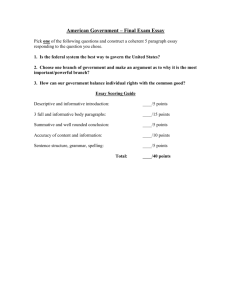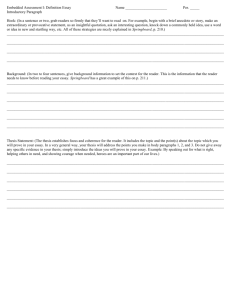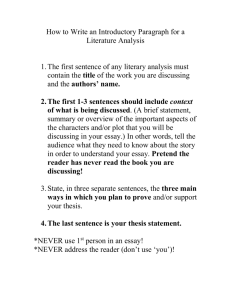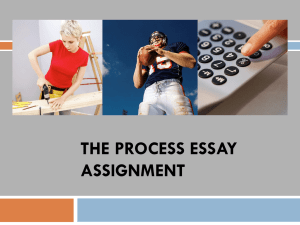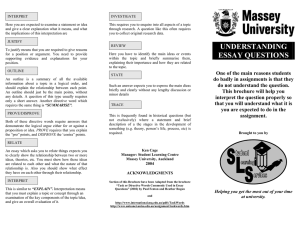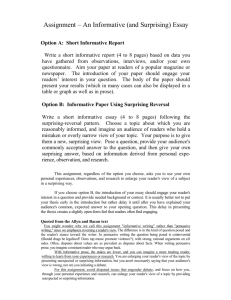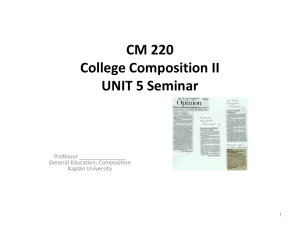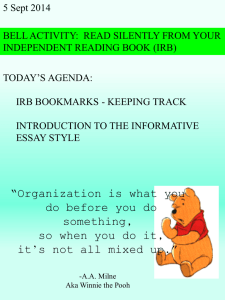Process Analysis Essay
advertisement
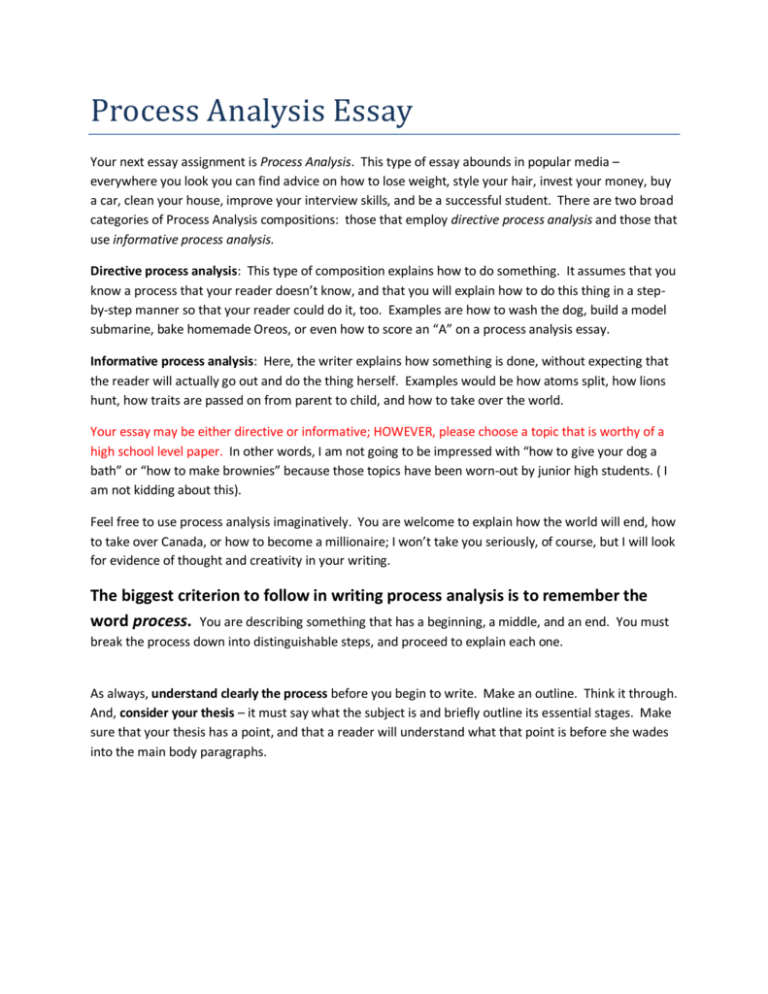
Process Analysis Essay Your next essay assignment is Process Analysis. This type of essay abounds in popular media – everywhere you look you can find advice on how to lose weight, style your hair, invest your money, buy a car, clean your house, improve your interview skills, and be a successful student. There are two broad categories of Process Analysis compositions: those that employ directive process analysis and those that use informative process analysis. Directive process analysis: This type of composition explains how to do something. It assumes that you know a process that your reader doesn’t know, and that you will explain how to do this thing in a stepby-step manner so that your reader could do it, too. Examples are how to wash the dog, build a model submarine, bake homemade Oreos, or even how to score an “A” on a process analysis essay. Informative process analysis: Here, the writer explains how something is done, without expecting that the reader will actually go out and do the thing herself. Examples would be how atoms split, how lions hunt, how traits are passed on from parent to child, and how to take over the world. Your essay may be either directive or informative; HOWEVER, please choose a topic that is worthy of a high school level paper. In other words, I am not going to be impressed with “how to give your dog a bath” or “how to make brownies” because those topics have been worn-out by junior high students. ( I am not kidding about this). Feel free to use process analysis imaginatively. You are welcome to explain how the world will end, how to take over Canada, or how to become a millionaire; I won’t take you seriously, of course, but I will look for evidence of thought and creativity in your writing. The biggest criterion to follow in writing process analysis is to remember the word process. You are describing something that has a beginning, a middle, and an end. You must break the process down into distinguishable steps, and proceed to explain each one. As always, understand clearly the process before you begin to write. Make an outline. Think it through. And, consider your thesis – it must say what the subject is and briefly outline its essential stages. Make sure that your thesis has a point, and that a reader will understand what that point is before she wades into the main body paragraphs.

